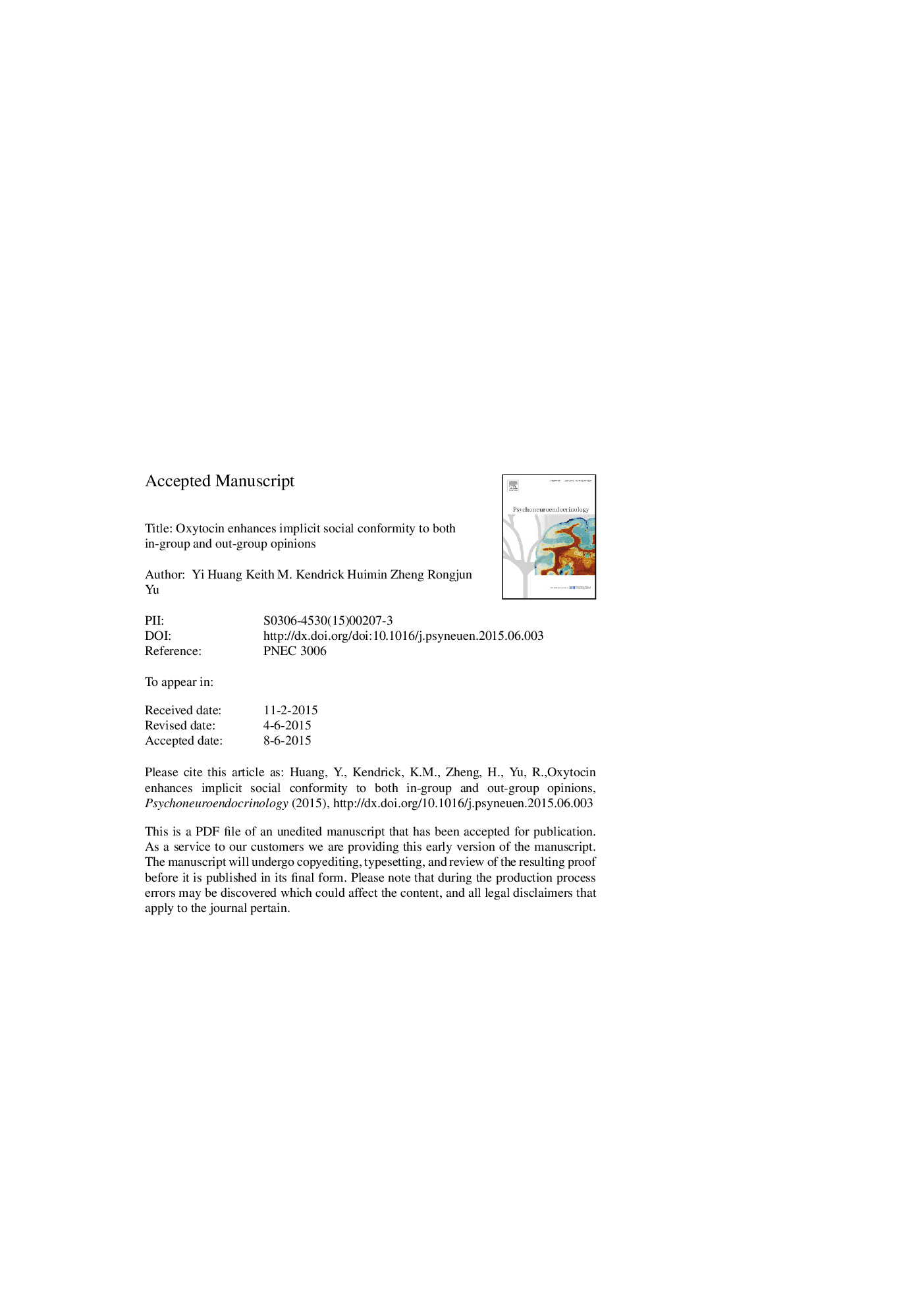| Article ID | Journal | Published Year | Pages | File Type |
|---|---|---|---|---|
| 6818707 | Psychoneuroendocrinology | 2015 | 20 Pages |
Abstract
People often alter their own preferences when facing conflicting opinions expressed by others. This is known as the social conformity effect and tends to be stronger in response to opinions expressed by in-group relative to out-group members. The hypothalamic neuropeptide oxytocin promotes in-group favoritism, elicits parochial altruism, and stimulates in-group conformity under explicit social pressure. In a double-blind, placebo-controlled design experiment using a facial attractiveness judgment task, we therefore investigated whether social conformity to either in-group or out-group opinions is influenced by intranasal oxytocin treatment when social pressure is implicit. After oxytocin or placebo treatment, male participants were asked to rate the attractiveness of unfamiliar Chinese female faces, and then they were informed of ratings given by peers from an in-group (Chinese) and out-group (Japanese) simultaneously. They were subsequently asked unexpectedly to re-rate the same faces. Results showed that oxytocin increased conformity to both in- and out-group opinions. Thus oxytocin promotes conformity to opinions of both in- and out-group members when social pressure is implicit, suggesting that it facilitates 'tend and befriend' behaviors by increasing the general level of social conformity.
Related Topics
Life Sciences
Biochemistry, Genetics and Molecular Biology
Endocrinology
Authors
Yi Huang, Keith M. Kendrick, Huimin Zheng, Rongjun Yu,
